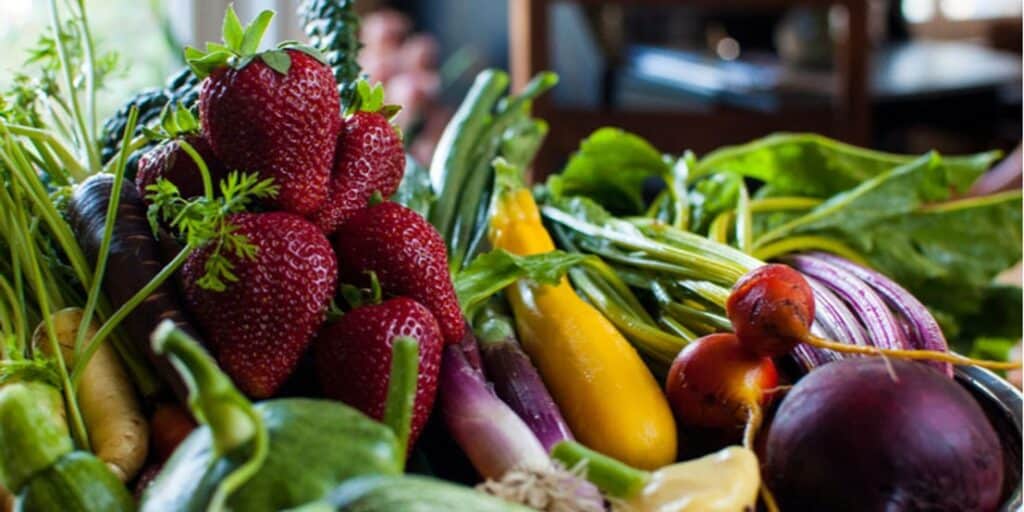Nutrition and Eye Health
I get a lots of questions about vitamins that may improve eye health. Below is a great article that is by the American Academy of Ophthalmology (www.AAO.org) discussing food to help your eyes. Unfortunately cookies (my favorite) did not make the list.

36 Fabulous Foods to Boost Eye Health
Leer en Español: 36 alimentos fabulosos para sus ojos
By Celia Vimont
Reviewed By Brenda Pagan-Duran, MD
Edited By David Turbert
Published Nov. 21, 2024 by American Academy of Ophthalmology (https://www.aao.org/eye-health/tips-prevention/fabulous-foods-your-eyes)
If you’re looking for a diet that’s healthy for your eyes, here’s some good news: The same diet that helps your heart and the rest of your body will help your eyes. Plus, you’ll enjoy many delicious choices.
Here are 26 vision-healthy foods and ideas for a diet rich in fruits, vegetables, beans and fish.
Why Is Nutrition Important for Good Vision?
“Some nutrients keep the eye healthy overall, and some have been found to reduce the risk of eye diseases,” said Rebecca J. Taylor, MD, an ophthalmologist in Nashville, Tennessee.
Eating a diet low in fat and rich in fruits, vegetables and whole grains can help not only your heart but also your eyes. This isn’t surprising: Your eyes rely on tiny arteries for oxygen and nutrients, just as the heart relies on much larger arteries. Keeping those arteries healthy will help your eyes.
What Should I Focus On for Eye-Healthy Eating?
Orange-colored vegetables and fruits with vitamin A
Perhaps the best-known eye-healthy nutrient is vitamin A. Your retina needs plenty of vitamin A to help turn light rays into the images we see. Also, without enough vitamin A, your eyes can’t stay moist enough to prevent dry eye.
Carrots are a well-known source of vitamin A. Sweet potatoes provide even more vitamin A, Dr. Taylor said. “A sweet potato has more than 200% of the daily dose of vitamin A doctors recommend.” Fruits, including cantaloupe and apricots, can be a good source of vitamin A.
Fruits and veggies rich in Vitamin C
Vitamin C is critical to eye health. As an antioxidant, vitamin C helps protect the body from damage caused by some things we eat, unhealthy habits and environmental factors. Fried foods, tobacco smoke and the sun’s rays can produce free radicals–molecules that can damage and kill cells. Vitamin C helps repair and grow new tissue cells.
Good sources of vitamin C include citrus fruits, such as oranges, tangerines, grapefruit and lemons. Lots of other foods offer vitamin C, including peaches, red bell peppers, tomatoes and strawberries. Antioxidants can prevent or at least delay age-related macular degeneration (AMD) and cataracts, according to the Age-Related Eye Diseases Study (AREDS).
Vitamin E
Another important antioxidant is vitamin E, which helps keep cells healthy. Vitamin E can be found in avocados, almonds and sunflower seeds.
Leafy green vegetables rich in lutein and zeaxanthin
Lutein and zeaxanthin are antioxidants found in the pigments of leafy green vegetables and other brightly colored foods. They are key to protecting the macula, the area of the eye that gives us our central, most detailed vision. Kale and spinach have plenty of these nutrients. Other foods with useful amounts of lutein and zeaxanthin include romaine lettuce, collards, turnip greens, broccoli and peas. And while not leafy and green, eggs also are a good source of these nutrients.
Beans and zinc
The mineral zinc helps keep the retina healthy and may protect your eyes from the damaging effects of light. However, zinc can lower the amount of copper in your body, which we need to help form red blood cells. Fortunately, you can increase both at once with all kinds of beans (legumes), including black-eyed peas, kidney beans and lima beans. Other foods high in zinc include oysters, lean red meat, poultry and fortified cereals.
Should I Get Eye-Healthy Nutrients Through Vitamin Supplements?
Eating the right food is the best way to get eye-healthy nutrients, Dr. Taylor said. “In general, most Americans can and should get enough nutrients through their diet without needing to take supplements.”
People who have macular degeneration are an exception. “In this case, taking supplements is recommended by the Age Related Eye Disease Study 2, a follow-up to the AREDS (Age-Related Eye Disease) Study. Talk with your ophthalmologist if you or a family member has AMD,” Dr. Taylor said.
No matter your age, it’s not too late to start eating healthy, she said. “So many of my patients focus on a healthy diet only after they’ve been diagnosed with a serious health problem. Start eating well now to benefit your vision and your health for the rest of your life.”

